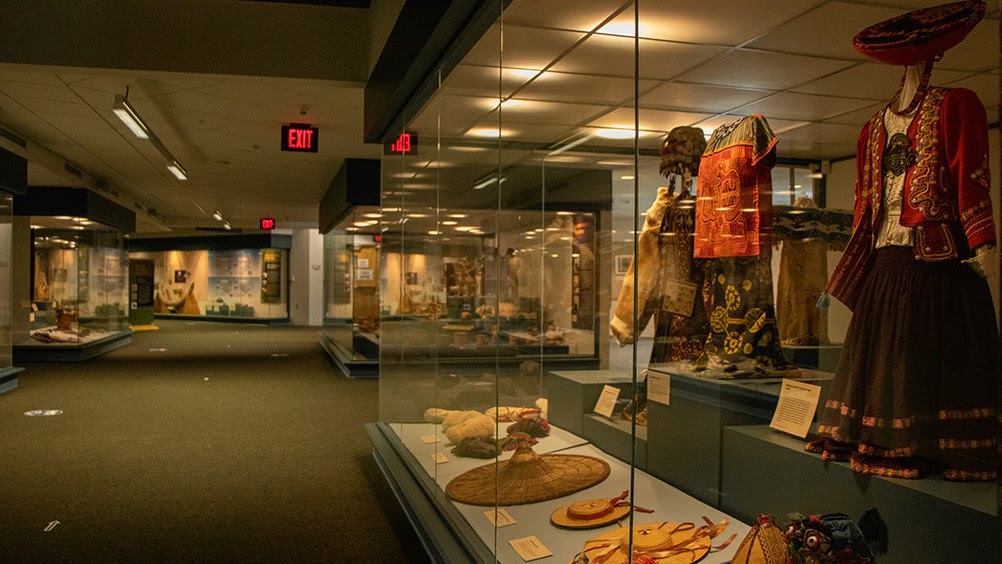The University of Maine is a school that prides itself on the celebration of diversity and each individual that is a part of it. Sitting on a piece of land that once belonged to the Penobscot Nation, the university pays tribute to the Penobscot tribe and makes sure they are represented in the community.
On Oct. 15 at 12:30 p.m., the Social and Marxist Studies Series hosted a webinar titled, “The Doctrine of Christian Discovery and Domination, Colonizing Indigenous Peoples, and the State of Maine,” virtually over Zoom.
This public event was free and hosted by Michael Swacha, a lecturer of English and philosophy, who organized and moderated the virtual discussion. This is the second program in the series, and it is available to listen to on the Socialist and Marxist Series website.
Retired Professor of Philosophy Doug Allen introduced the topic for discussion and gave a brief overview of what the audience could expect during the program. Three panelists were given time to present their findings and thoughts, and then the floor was opened up for discussion via the chat function on Zoom.
Chair of the Episcopal Committee on Indian Relations and former Executive Director of Maine Indian Tribal-State Commission John Dieffenbacher-Krall was the first panelist in the discussion. Krall is also an activist and volunteer who has held the position of executive director for 12 years.
Krall presented his findings on the Doctrine of Christian Discovery and Domination and gave an overview of its meaning and significance. The doctrine promoted the moral justification of taking control of non-Christian lands, and formed the basis for the annexation of land belonging to the Wabanaki land other Indigenous groups. Krall also appeared as a speaker in the series 27 years ago in 1993, when he was speaking on the topic of addressing healthcare in the state of Maine.
Chair of Native American Programs and Associate Professor of Anthropology Darren Ranco, was the second panelist in the program and is a citizen of the Penobscot Nation. He further discussed the doctrine, highlighting its connection and relevance to the state of Maine. Ranco also presented on Maine’s Constitution and explained its relation to the doctrine.
One aspect of the presentation dealt with unpacking the consequences of creating doctrines such as this one, and how “otherness” quickly became a part of domination and superiority when dealing with the rights of Indigenous people, especially in the Maine Supreme Court. This “otherness” has led to racialization, and for some, it creates both rationale and opportunities for the appropriation of land and water sacred to Indigenous communities.
Chelsea Fairbank was the third speaker in the panel and is a Ph.D. candidate in anthropology and environmental policy. Fairbank gave a presentation about the more specific effects of the doctrine and shared facts surrounding its use and ramifications. Fairbank unpacked a specific ongoing court case in which the state of Maine is claiming exclusive jurisdiction: Penobscot Nation v. Frey/Mills. This case began in 2015 and is still ongoing and awaiting the verdict. The Maine Indian Claims Settlement Act of 1980, enacted by Congress, is the basis for this case.
Fairbank discussed this case’s connection to the Penobscot River and drew in other panelists’ points about racial dominance through territorial takings. Sacred rivers and lands that Indigenous people inhabit hold a historical and cultural significance that is often lost and forgotten when they are taken, a point Fairbank and the other speakers stressed the importance of.
Many professors and audience members who attended the program asked questions about the doctrine and the court case as mentioned by Fairbanks as they engaged in discussions with the panelists. The panelists provided updates on the case of Penobscot Nation v. Frey/Mills and further explained the current specific research they are doing that is relevant to the field.
The Socialist and Marxist Studies Series has two more upcoming virtual programs for the fall 2020 semester. These include a panel on Oct. 29 at 12:30 p.m. titled “Karl Marx in 2020,” and one called “The Humanities as Activism in Chicago” which takes place on Nov.12.
To learn more about upcoming events or the Socialist and Marxist Study Series, please visit https://umaine.edu/socialistandmarxiststudiesseries/.










